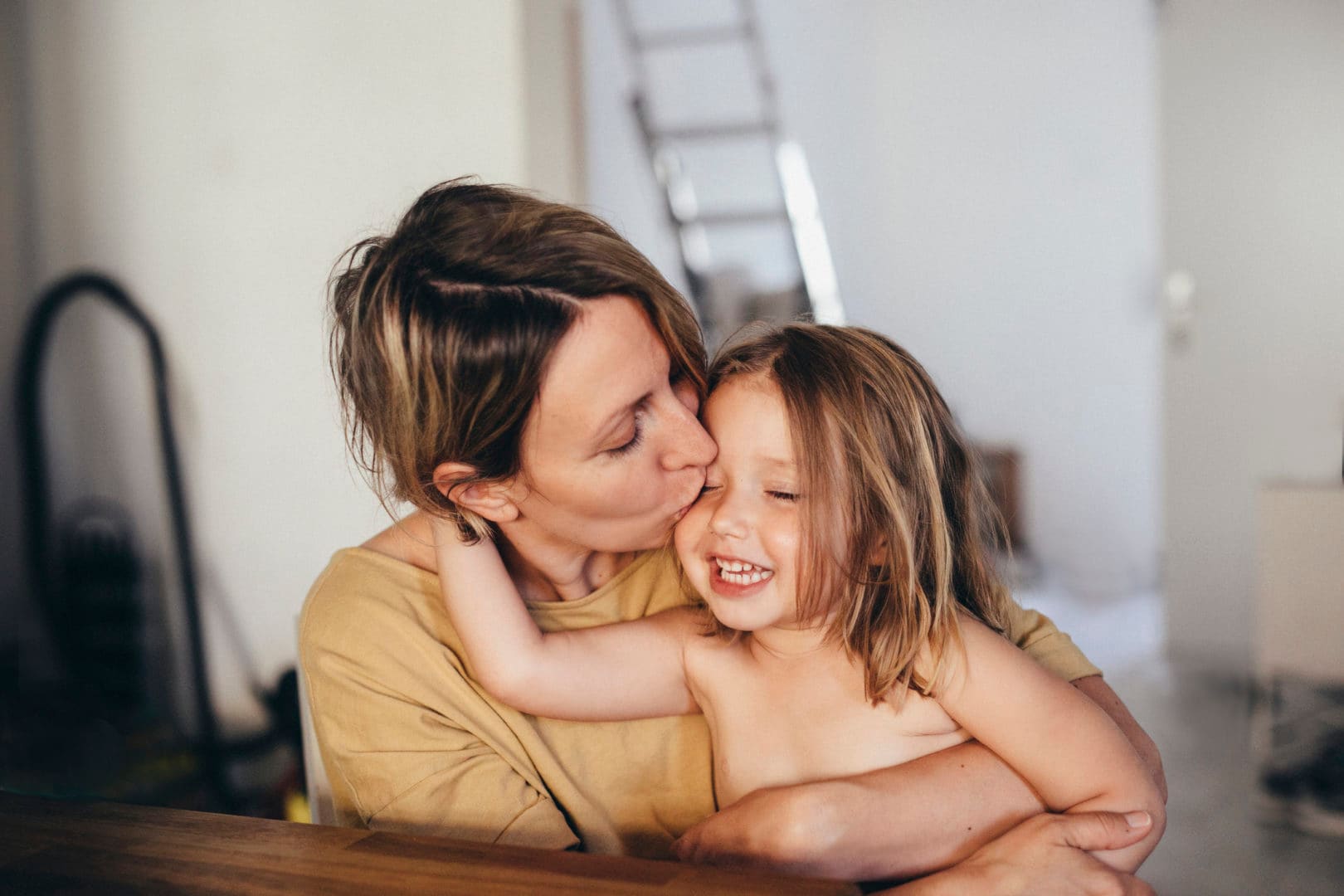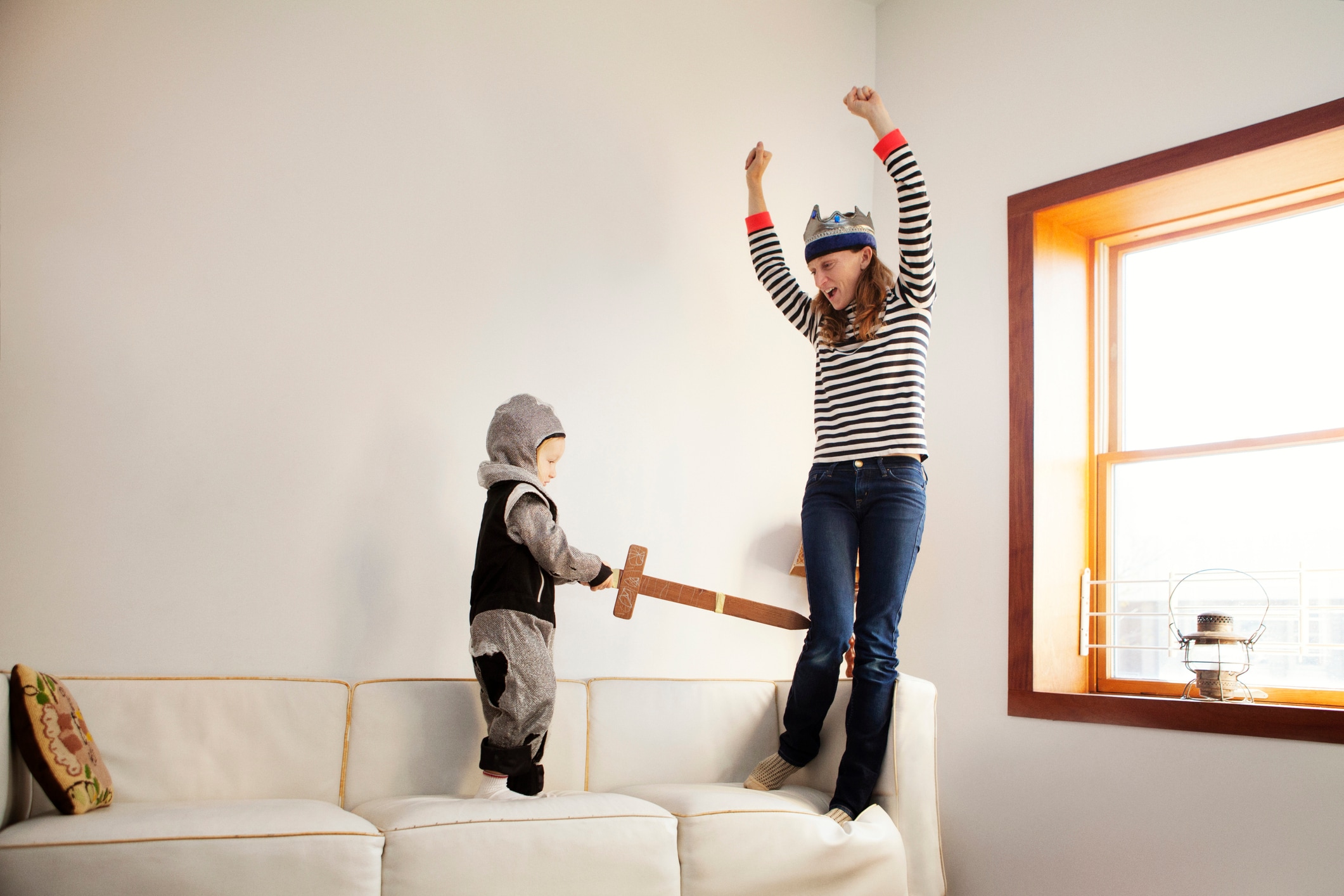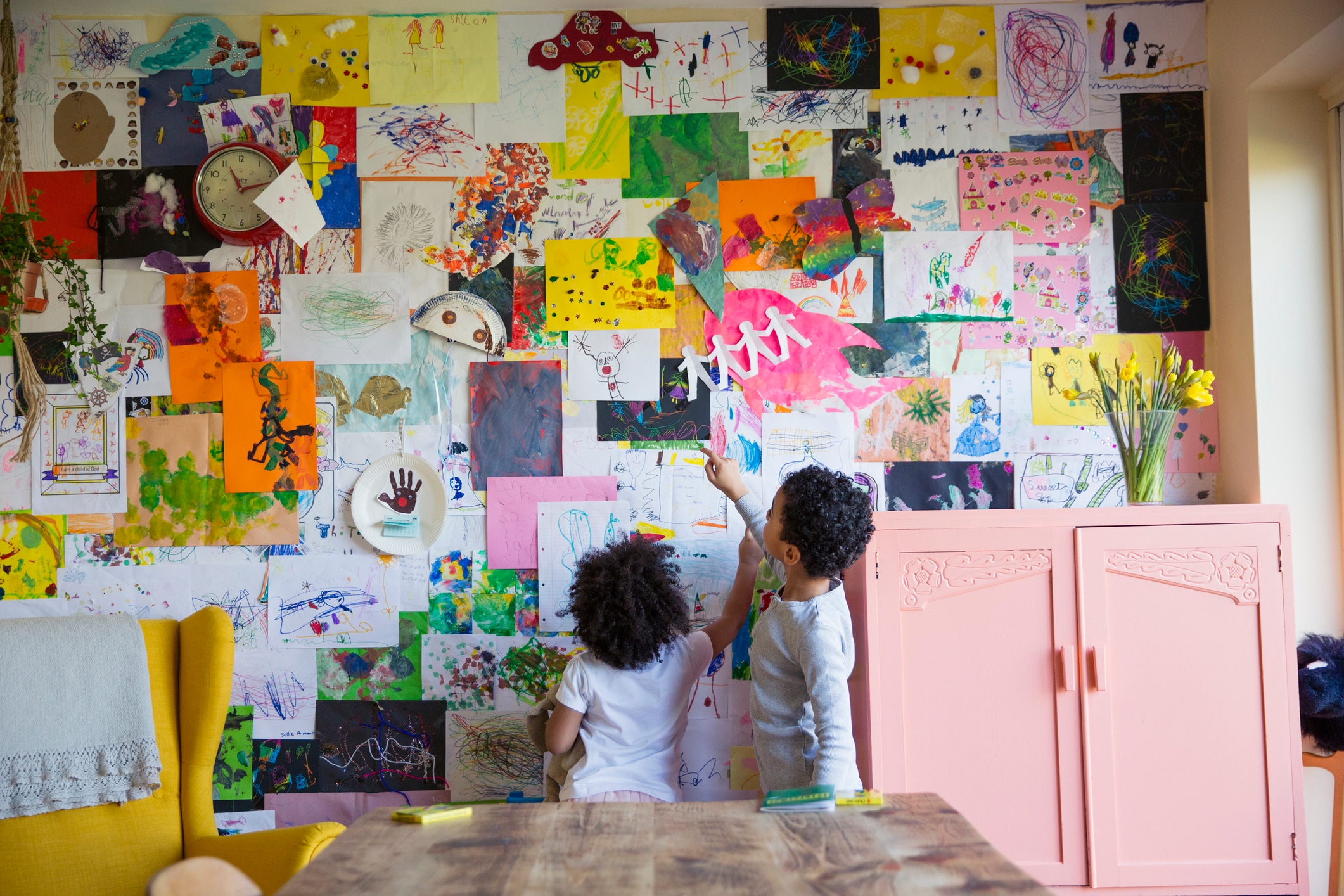It’s a familiar scenario for many parents. You’re walking hand-in-hand with your 2-year-old up to day care, and suddenly, they start protesting, or worse, having a full-blown tantrum. Or you sign them up for a new activity, and as soon as it’s time for you to take your seat off to the side, your child won’t let go of your leg. Or maybe you look over at your child during their friend’s birthday party, only to see them, standing there, looking nervous and lost. What’s happening? They’re dealing with toddler separation anxiety, and it’s totally normal.
“Separation anxiety is what happens when a child feels uneasy by being separated from a loved one,” notes Dr. Sara Siddiqui, a pediatrician and clinical assistant professor in the Department of Pediatrics at NYU Langone’s Hassenfeld Children’s Hospital in New York. “This often happens to toddlers when they’re placed in a new or different situation, or in situations, where they may feel uncomfortable.”
While separation anxiety in toddlers is common (and, yes, they’ll grow out of it), it can be a bit heartbreaking for parents to watch. “There was a period when my son started crying every time I dropped him off at day care,” says mom of three Jaclyn Santos of Hazlet, New Jersey. “The school would always message me saying he was fine within minutes of my leaving, but still, it crushed me!”
Wondering where your 2-year-old’s separation anxiety is coming from and when it’s going to end? Here, experts offer insight and tips on toddler separation anxiety.
Why does my 2-year-old have separation anxiety?
According to Tovah Klein, who holds her doctorate in clinical and developmental psychology and is the director of the Barnard College Center for Toddler Development and author of “How Toddlers Thrive,” 2-year-old separation anxiety typically stems from toddlers’ desire to explore the world around them — and the worry that follows from being in uncharted territory on their own. “Two-year-olds are just starting to gain a strong sense of self, [becoming] someone who’s separate from mommy and daddy,” notes Klein. “And while it’s great that they’re eager to explore the world around them, they soon realize that the world is a big place that can be scary at times.”
Even though it may often seem like your toddler wants to do everything on their own (sometimes to a maddening degree!), they still very much want — and need — the comforting home base of their parents. “When a child is out in the world without their parent, there can be anxiety that stems from wondering and worrying about whether the parent is still there for them,” says Klein. “Even though children this age are starting to become aware that they have different ideas from their parents, and that they’re not always following the rules, they still worry about their parents being upset, and at the extreme, they fear losing them.”
In other words, contrary to how your child may act sometimes, they still very much need you.
Is it normal for a 2-year-old to have separation anxiety?
Separation anxiety in toddlers is “very normal,” according to Klein.
But while separation anxiety in children isn’t uncommon, there is a more serious condition that is cause for concern: separation anxiety disorder. According to the Mayo Clinic, separation anxiety disorder usually begins around the preschool years and is a much more “intense or prolonged” version of normal separation anxiety. It can interfere with daily activities, school and possibly include panic attacks.
If you think your child has separation anxiety disorder, which can stem from a number of things, including the illness or death of a loved one, it’s crucial to professional advice as soon as possible.
What does separation anxiety look like in toddlers?
Separation anxiety can crop up in a variety of ways, depending on the situation and your child’s temperament. Here are a few common ways 2-year-olds will behave when experiencing separation anxiety, according to Klein and Siddiqui:
- Clinginess. “Toddlers can be clingy or scream when a parent leaves the house, or even goes into another room,” says Klein. “They may demand that the parent stay right next to them or not want to say goodbye at day care or school.”
- Extreme behavior. “For some toddlers, the behavior can be loud crying and/or yelling,” says Klein. “In other cases, a child may get very quiet, look down and pull inward.”
- Slow to warm up. “In toddlers or older children, separation anxiety can present as ‘slow to warm up,’ in which a child may not be willing to join the other children in a birthday party setting or at school,” explains Siddiqui. “Sometimes they’ll be unwilling to play with other kids they don’t know well.”
- Waking up at night. Get the coffee ready! “For some toddlers, night awakenings or refusing to go to sleep — dragging out bedtime — is part of separation anxiety,” says Klein.
How can I help my 2-year-old with separation anxiety?
You may not be able to stop separation anxiety from happening altogether, but fortunately, there are a number of things you can do to mitigate it or make it less frequent of an occurrence for your child.
Reassure them. “Remind your child that mommy or daddy always comes back,” says Klein. “The fear is that they will lose the parent, that the parent will leave and they won’t see them again, so continually using the ‘I always come back’ mantra is important.”
Leave a personal item. “Parents can leave a personal item, such a hair clip, handkerchief or T-shirt for the child as a reminder of the parent(s),” explains Klein. “A family photo that the child can carry around is a great security while the parent is gone, also.”
Arrange playdates. “For toddlers with some separation anxiety at school drop-off or during parties, organizing smaller playdates with only one or two friends at a time may help the child feel more comfortable, and in turn, easier to separate,” says Siddiqui.
Paint a future picture. “When my daughter went through a phase of being upset when I dropped her off at day care, I always would mention exactly what we were going to do when I picked her up,” says mom of two Sydney Reilly of Syracuse, New York. “I’d say: ‘First, we’ll play on the playground, then we’ll drive home, then we’ll have chicken for dinner, etc.’ Having a clear idea of what was in the future seemed to always help.”
Make goodbyes quick. While you may have a knee-jerk reaction to smother your child in hugs and kisses when they’re in tears at the thought of your leaving, don’t. “It’s best to avoid prolonged goodbyes with your child when they’re going through separation anxiety,” says Siddiqui. “This usually only makes the situation worse.”
Stay calm. Kids often pick up on their parents’ energy, so try to keep cool. “If you’re feeling some anxiety about the separation, your child will likely, too,” says Siddiqui. “Kids usually pick up on nervousness and react to it in their own way.”
Do your best to ensure they’re fed and well-rested. “If a child is tired or hungry, the manifestation of separation anxiety might last longer and be more upsetting for the child,” says Siddiqui.
How long does separation anxiety last in 2-year-olds?
When it comes to the length of time your toddler will exhibit separation anxiety, there’s no hard and fast rule. A lot of it depends on your child’s disposition and the situation they’re in. “Separation goes up and down at this age, as it does throughout childhood,” says Klein. “It can appear at the beginning of school or day care because it is new, or it can appear when the child is having a big developmental change, such as acquiring more language or a new physical skill or toilet training.”
Separation anxiety can also flare up when times are stressful, even if it hasn’t made an appearance in a while. “When this happens, typically it lasts a few weeks and then settles down, only to possibly reappear at another time — all normal,” says Klein. “It’s your child’s way of saying: ‘No matter how big I get and how much I move out in the world, I need you.’”





